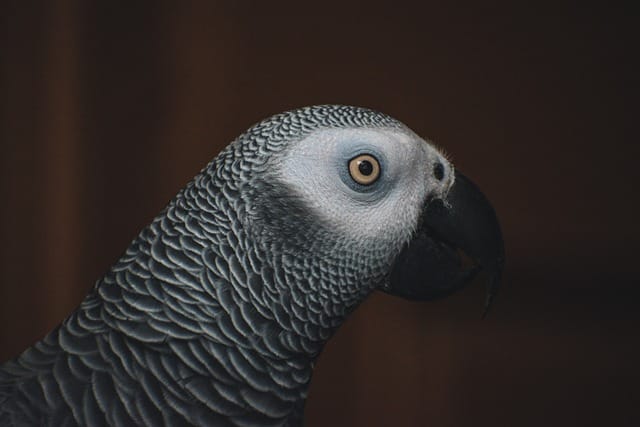Parrots are among the most popular exotic birds in the USA, known for their intelligence, vibrant colors, and engaging personalities. However, caring for these beautiful creatures requires knowledge and dedication. In this comprehensive guide, we’ll cover everything you need to know about parrot care, from diet and housing to enrichment and socialization.
1. Understanding Your Parrot’s Needs
Parrots are highly social and intelligent birds, and their care extends beyond food and shelter. They require mental stimulation, social interaction, and a safe environment to thrive.
- Popular parrot species: African Grey Parrot, Macaw, Cockatoo, Amazon Parrot, and Conure.
- Lifespan: Depending on the species, parrots can live from 15 to 80 years. Owning a parrot is a long-term commitment.
2. Housing: Creating a Comfortable Home
Providing the right habitat is crucial for your parrot’s health and happiness.
- Cage size:
- Small parrots (e.g., Conures): Minimum 24 x 24 x 24 inches.
- Large parrots (e.g., Macaws): Minimum 36 x 48 x 48 inches.
- Placement: Keep the cage in a bright, airy room but away from direct sunlight, drafts, and kitchen fumes.
- Perches and accessories: Use natural wood perches and add ladders, swings, and toys for enrichment.
3. Diet: Feeding Your Parrots for Optimal Health
A parrot’s diet should mimic what they eat in the wild: a mix of seeds, fruits, vegetables, and nuts.
- Fresh foods: Include leafy greens, carrots, apples (seedless), and berries.
- Pellets: Commercial pellet diets provide balanced nutrition.
- Avoid: Chocolate, avocado, caffeine, and high-fat or salty foods.
4. Enrichment: Keeping Your Parrots Happy and Engaged
Parrots are intelligent creatures that can become bored or anxious without proper stimulation.
- Toys: Rotate toys regularly to keep them interesting. Puzzle toys are great for mental engagement.
- Social interaction: Spend time talking to and playing with your parrot daily.
- Out-of-cage time: Allow your parrot to fly or explore outside the cage for at least 2-3 hours a day in a safe environment.
5. Health: Spotting and Preventing Common Issues
Keeping your parrot healthy requires regular check-ups and attention to their behavior.
- Common health problems:
- Feather plucking: Often due to stress or boredom.
- Respiratory infections: Symptoms include sneezing and wheezing.
- Vitamin deficiencies: Caused by a poor diet.
- Preventive care:
- Regular vet visits (avian specialist recommended).
- Keep the cage clean and free of droppings.
6. Training and Socialization
Parrots thrive on interaction and can be trained to perform tricks or mimic sounds.
- Positive reinforcement: Use treats and praise to encourage desired behaviors.
- Consistency: Short, daily training sessions are more effective than occasional, long ones.
- Talking: Start with simple words and repeat them often. African Greys and Amazon Parrots are particularly adept at talking.
7. Legal and Ethical Considerations
Before getting a parrot, ensure that you understand the legal requirements for owning exotic birds in your state. Additionally, consider adopting from a rescue or sanctuary rather than purchasing from breeders.
Final Thoughts
Caring for a parrot can be a deeply rewarding experience. These charismatic birds offer companionship and entertainment but require commitment and proper care to thrive. By understanding their needs and creating a supportive environment, you can build a lifelong bond with your feathered friend.

